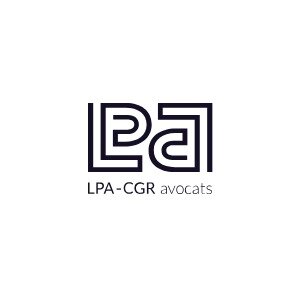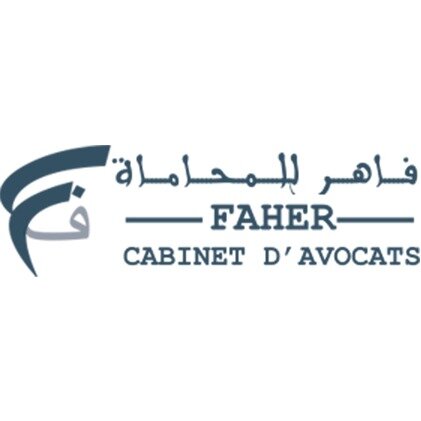Best Restructuring & Insolvency Lawyers in Casablanca
Share your needs with us, get contacted by law firms.
Free. Takes 2 min.
List of the best lawyers in Casablanca, Morocco
About Restructuring & Insolvency Law in Casablanca, Morocco
Restructuring and insolvency law in Casablanca is a crucial part of Morocco's legal and economic framework. This legal area focuses on helping struggling businesses or individuals manage financial hardships, either by reorganizing debts and operations or by liquidating assets to satisfy creditors. Casablanca, being Morocco's commercial hub, sees a significant share of insolvency matters due to its concentration of companies and financial institutions. The legal process is governed by national Moroccan laws and regulations, with procedures heard in local commercial courts. These legal provisions are designed to balance the interests of both debtors and creditors, aiming to preserve businesses and jobs whenever possible while ensuring fairness for all parties involved.
Why You May Need a Lawyer
Dealing with restructuring or insolvency can be complex, stressful, and highly technical. There are several situations in which you may require the assistance of a qualified lawyer in Casablanca, such as:
- You are a business owner facing significant debt and want to explore restructuring options to avoid bankruptcy.
- You represent a creditor seeking to recover outstanding debts from an insolvent company or individual.
- You are an investor or stakeholder worried about the impacts of a company's financial difficulties.
- You need advice on complying with Moroccan insolvency laws and court procedures.
- You require guidance on negotiating settlements or drafting agreements during restructuring processes.
- You want to understand your rights and obligations during liquidation or reorganization proceedings.
A specialist lawyer can help you navigate local procedures, protect your interests, negotiate with other parties, and ensure compliance with Moroccan law, minimizing risks and potential losses.
Local Laws Overview
Restructuring and insolvency in Casablanca are primarily governed by the Moroccan Commercial Code (Code de Commerce), particularly Book V, which sets out procedures for companies in difficulty. Key aspects include:
- Preventive Settlement (Règlement Amiable): A legal process allowing debtors to negotiate with creditors under court supervision to avoid insolvency.
- Judicial Reorganization (Redressement Judiciaire): Initiated when a company cannot meet its financial commitments. The court can approve plans to reorganize the business and pay back creditors over time.
- Judicial Liquidation (Liquidation Judiciaire): Used when reorganization is not possible. Assets are sold off under court oversight to pay creditors.
- Role of Commercial Courts: All restructuring and insolvency procedures are handled by specialized commercial courts in Casablanca.
- Creditors' Rights: Creditors are classified by priority, influencing the order in which claims are paid during liquidation.
- Obligations of Debtors and Directors: Company directors have duties to act swiftly if insolvency is looming, and can face penalties for failing to do so.
- Moratorium and Stay of Proceedings: During official proceedings, creditors are typically prevented from pursuing individual enforcement actions outside the court process.
Understanding these local laws is essential for all parties involved in financial distress situations in Casablanca.
Frequently Asked Questions
What is the difference between restructuring and insolvency?
Restructuring refers to negotiating and implementing changes to a company’s debts or operations to restore financial health. Insolvency is the legal state of being unable to pay debts as they come due. Restructuring may occur before or during insolvency proceedings.
How does insolvency affect company directors in Casablanca?
Directors have specific legal obligations if their company is facing financial difficulty. Failing to act promptly, such as by delaying filing for insolvency, can result in personal liability or legal sanctions under Moroccan law.
Can individuals (not businesses) file for insolvency in Morocco?
Moroccan insolvency laws mainly focus on businesses. However, individuals engaged in commercial activity (such as sole traders) can be subject to insolvency proceedings before commercial courts.
What happens to employees during company insolvency?
Employee claims, like unpaid wages and severance, have legal protection and priority among creditors during liquidation proceedings, but actual payments depend on available assets.
Can creditors force a company into insolvency in Casablanca?
Yes, creditors can petition the commercial courts to open judicial reorganization or liquidation proceedings against a debtor who is no longer able to meet financial obligations.
What is a moratorium in insolvency proceedings?
A moratorium is a legal freeze on most creditor enforcement actions against a debtor. It is typically imposed during official insolvency or restructuring processes to allow negotiation and prevent asset seizures.
How long does the insolvency or restructuring process typically take?
The duration varies based on case complexity, size of debts, and court workload. Simple liquidations can take several months, while complex reorganizations may last years.
Are out-of-court settlements possible in Morocco?
Yes, Moroccan law encourages out-of-court settlements and preventive settlement (règlement amiable) to resolve financial difficulties before formal insolvency is declared.
Do foreign creditors have rights in Moroccan insolvency cases?
Foreign creditors can participate in Moroccan insolvency proceedings, but must follow local procedures and their claims are subject to Moroccan law and court jurisdiction.
Is bankruptcy the same as insolvency in Morocco?
In Morocco, “bankruptcy” loosely refers to judicial liquidation, but the legal term “insolvency” covers both the inability to pay debts and the formal court proceedings that address this situation.
Additional Resources
If you need further information or support regarding restructuring and insolvency in Casablanca, consider the following resources:
- Moroccan Ministry of Justice: Offers legal guides and public information about commercial law procedures.
- Casablanca Commercial Court (Tribunal de Commerce de Casablanca): Handles insolvency filings and related judicial proceedings.
- National Association of Chartered Accountants and Auditors: Helpful for business owners seeking financial assessments or advice.
- Chamber of Commerce, Industry, and Services of Casablanca-Settat: Can provide guidance for businesses facing economic difficulties.
- Professional legal associations: Such as the Casablanca Bar Association, which can help you find a qualified restructuring and insolvency lawyer.
Next Steps
If you believe you need legal assistance with restructuring or insolvency matters in Casablanca, consider the following actions:
- Gather all relevant financial documents and company records.
- Identify and prepare a list of your creditors or outstanding obligations.
- Consult with a qualified lawyer who specializes in insolvency and restructuring law in Casablanca.
- Schedule an initial consultation to discuss your situation, potential legal strategies, and likely outcomes.
- Follow your lawyer’s guidance to initiate negotiations, out-of-court settlements, or formal court procedures as appropriate.
Acting quickly can help preserve options, minimize losses, and improve the chances of a successful restructuring or a fair outcome during insolvency proceedings.
Lawzana helps you find the best lawyers and law firms in Casablanca through a curated and pre-screened list of qualified legal professionals. Our platform offers rankings and detailed profiles of attorneys and law firms, allowing you to compare based on practice areas, including Restructuring & Insolvency, experience, and client feedback.
Each profile includes a description of the firm's areas of practice, client reviews, team members and partners, year of establishment, spoken languages, office locations, contact information, social media presence, and any published articles or resources. Most firms on our platform speak English and are experienced in both local and international legal matters.
Get a quote from top-rated law firms in Casablanca, Morocco — quickly, securely, and without unnecessary hassle.
Disclaimer:
The information provided on this page is for general informational purposes only and does not constitute legal advice. While we strive to ensure the accuracy and relevance of the content, legal information may change over time, and interpretations of the law can vary. You should always consult with a qualified legal professional for advice specific to your situation.
We disclaim all liability for actions taken or not taken based on the content of this page. If you believe any information is incorrect or outdated, please contact us, and we will review and update it where appropriate.

















